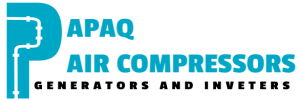Understanding the key factors to consider when selecting an air compressor for your specific industry needs, including capacity, pressure requirements, and energy efficiency.
Understanding Your Compressed Air Requirements
Selecting the right air compressor for your industrial application is a critical decision that affects productivity, energy costs, and operational efficiency. This comprehensive guide will walk you through the essential factors to consider when making this important investment.
1. Determine Your Air Flow Requirements (CFM)
The first step in choosing an air compressor is calculating your Cubic Feet per Minute (CFM) requirements. This involves:
- Inventory all pneumatic tools and equipment that will be connected to the system
- Calculate total CFM demand by adding individual tool requirements
- Apply a safety factor of 20-30% for future expansion and peak demand
- Consider duty cycle - not all tools operate simultaneously
2. Pressure Requirements (PSI)
Different applications require different pressure levels:
- Light industrial applications: 90-125 PSI
- Heavy industrial applications: 125-175 PSI
- Specialized applications: Up to 500+ PSI
3. Types of Air Compressors
Rotary Screw Compressors
Best for continuous operation, high efficiency, and industrial applications requiring consistent air supply.
Reciprocating (Piston) Compressors
Ideal for intermittent use, smaller operations, and applications with varying air demand.
Centrifugal Compressors
Perfect for large-scale operations requiring high volumes of compressed air.
4. Energy Efficiency Considerations
Energy costs typically account for 70-80% of a compressor's total cost of ownership. Consider:
- Variable Speed Drive (VSD) technology for varying demand applications
- Energy recovery systems to capture waste heat
- Premium efficiency motors and components
- Proper sizing to avoid oversizing and energy waste
5. Installation and Infrastructure Requirements
Plan for:
- Adequate ventilation and cooling
- Electrical requirements and power supply
- Foundation and mounting considerations
- Air distribution system design
- Condensate management and drainage
Conclusion
Choosing the right air compressor requires careful analysis of your specific needs, operating conditions, and long-term goals. Our team of experts is ready to help you make the best decision for your application. Contact us today for a personalized consultation and quote.






